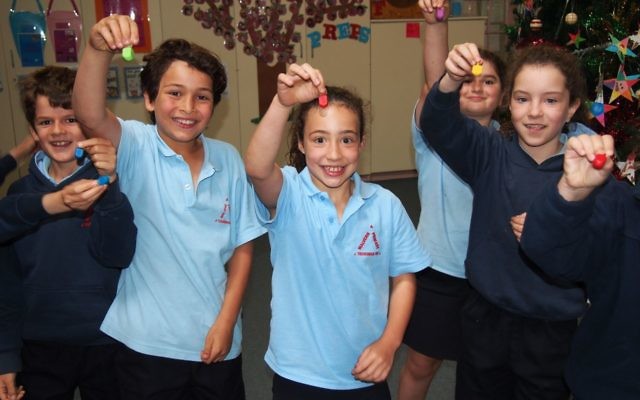UJEB battling to save SRI
TERM one for the United Jewish Education Board (UJEB) has been fraught with difficulties, losing close to 500 of its primary school students across Victorian state schools due to the Education Department’s changes to the Special Religious Instruction (SRI) program.
The new policy introduced last year allows schools to withdraw from the SRI program if there are insufficient resources. With a growing number of schools declining the services of UJEB and SRI providers of other faiths, approximately one third of the Jewish students at state schools are now not offered Jewish classes.
Just last week, Valkstone Primary School, with 225 Jewish students, joined more than 10 other state schools in declining the SRI program, including Carnegie Primary School, Elsternwick Primary School and Murrumbeena Primary School.
UJEB’s executive director Marlo Newton said they were “blindsided” by Valkstone’s decision as the Jewish students make up 50 per cent of the student body.
“A couple of schools where we had two to three kids, we get that it’s hard to ask for teachers, but schools where we had 20 or 30 kids – like in Carnegie and Murrumbeena – and they say it’s not enough to warrant the service, we query because [whether there are enough students] is not supposed to be the deciding point,” she said.
She identified the tedious paperwork, reluctant principals with far too much discretion and disorganisation from the primary schools as the factors affecting UJEB’s ability to conduct the program.
“Schools always had the power to opt out but the expectation was that it would run. Now the expectation is open. It doesn’t help that the government has made it a lot harder to run the program with a lot more paperwork … And principals who are not in favour of the program are not running it and it shouldn’t be up to that.”
Valkstone’s principal Marilyn Koolstra said that while the school will no longer be offering the SRI program, it will continue to recognise a “range of cultural and religious celebrations important” to the school community.
While children can attend after-school activities run by UJEB or other organisations, these can involve a significant financial contribution, while the SRI is government-funded with a voluntary $36 fee.
“People who already don’t have the money to fully partake in the Jewish community are being left out. If they want to participate in the Jewish community, they now have to pay,” Newton said. “This is really sad for the Jewish community.”
UJEB is holding meetings with parents, other faith providers and Education Minister James Merlino to talk about the level of compliance and the amount of paperwork involved.
ZOE KRON
Students of UJEB’s special religious instruction program preparing for Chanukah at Malvern Primary School last year.


comments